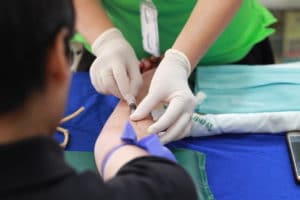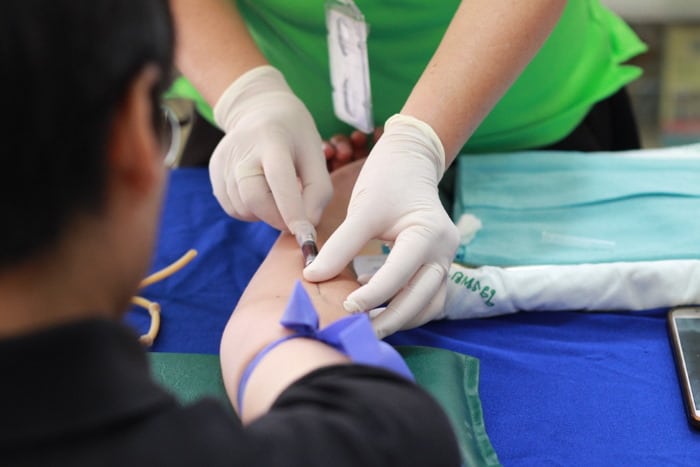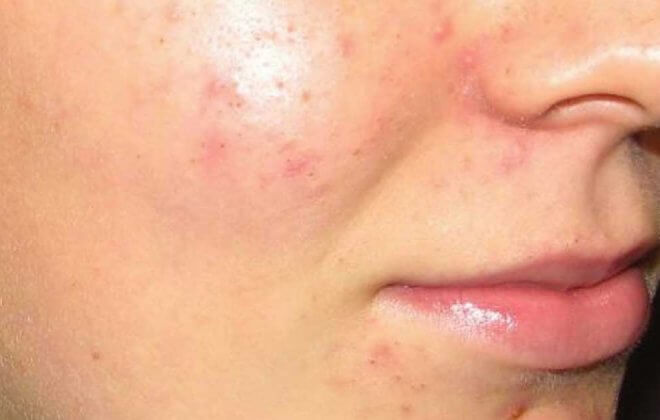Ways to Take Care of a Patient
Ways to Take Care of a Patient – Helpful Virus Advice
We have all been in situations wherein we had to take care of a loved one and be by their side. Such a situation is emotionally and mentally challenging and requires us to be fully cognizant of the kind of care that a patient requires. We are required to know what they need to truly provide the best support possible. Our presence brings hope and solace to them and helps them to get better soon. Moreover, we must also be savvy with health information to keep ourselves knowledgeable to care for the patients. Check for signs of the coronavirus covid-19, avoid close contact, physical distancing, get tested, stay home and self-insolate until the results come back.
The basics of caring for a patient are simple; all we need to do is maintain good hygiene standards, adhere to patient safety rules and remain attentive to be able to note their changing conditions. But acute medical care requires some extra measures. Irrespective of the patient’s specific condition, in all circumstances, we need to adhere to the measures relating to skin care. Let us have a detailed look at the ways to do so.
- Consult a Medical Practitioner
The core step to caring for any patient is to provide them with the right health care. It is important to seek the services of a good practitioner to ensure that all the proceeding steps will be carried out properly. To find a doctor who is an expert in skincare, you can look for recommendations online and ask your relatives and friends for referrals. Some people opt for a home doctor bulk bill as this gives them a lot of convenience in terms of billing and finances.
- Give Hygiene Priority
Wash your hands with soap and water or an alcohol-based hand sanitiser. The one crucial step that is essential and beneficial in all sorts of skin conditions is adhering to hygiene. Ensuring that the patient’s skin remains clean is crucial to averting any severity of the condition they are suffering from. Also, it is imperative to use a skin sanitiser or cleaner before and after serving food to the patient, and when administering medical care to them. It is important to wear a mask to cover the nose and mouth all the while avoiding the spread of the disease.
- Ensure Coordinated Care
No matter what the condition of the patient is, providing medical care to them alone can prove to be a difficult task. That is why you should involve all family members and others who can assist in this regard. This becomes particularly useful if the patient requires round-the-clock observation and care. When more people are involved in the care, they can distribute the tasks to make sure that the patient is looked after properly. For instance, while a family member makes sure that the patient does not miss any dosage, another can coordinate with the medical practitioner to assist them in their efforts.
- Make it Comfy
A skincare patient, or any patient for that matter, requires an attendant to provide them with physical comfort. Those suffering from any condition or disease can sometimes find it difficult to convey to the doctor what they are going through. So, it is the attendant’s job to do so. You can also hire a professional attendant to look after the patient and pay attention to their specific needs. Taking physical care of the patient also requires that we take prompt medical actions as and when required.
- Gain Vital Information
Medical practitioners need exact information to be conveyed to them, and this can only be done with the full coordination of the attendants. Your information is critical and vital for the patient to decide which medication they should be taking and which future course of action is best for them. Attention to detail is critical at this point as every piece of information can help improve the patient’s health. This data may be related to the changing skin condition, heart rate, blood pressure and symptoms of pain. Again, paying attention to the skin is immensely important because eczema and other emerging conditions can compromise the patient’s health and deteriorate their condition.
Other skin conditions such as fungi can prove to be detrimental for the patients and spread to others. Therefore, sometimes it is important to keep a certain patient in isolation until the disease is confirmed and cured.
- Provide Emotional Support
Mental health is something that can be overlooked sometimes, but the fact of the matter is that emotional support is, in many cases, way more important than physical care. Patients are proven to get better faster if emotional comfort and support are continuously provided to them. Your warmth and attention help the patient realize that they can get better soon. They are reliant on your presence and expect you to do whatever is possible for their betterment.
7. Be Ready for an Emergency
Patient care is not always easy and avoiding higher risks is important. Sometimes, a patient’s condition can deteriorate and require urgent medical attention. This is why you should always be mentally prepared to react to an emergency. In this regard, always be aware of how you can access the doctor immediately. You must also keep medical emergency numbers close as these can come in handy in times of worry and urgency. Another smart way to deal with an emergency diligently and smartly is to have an emergency kit prepared and ready. In addition to knowing how to use such a kit, you can also impart training to the family members to perform CPR and other life-saving techniques when required.
Conclusion
Looking after a patient is one of the most novel things to do. It provides a certain amount of emotional and mental satisfaction. Coordinated support holds special importance in this regard as it helps the patient recover speedily. Adherence and attention to hygiene are vital for the patients as well as their attendants to uphold the finest standards of medical practice.
Moreover, all attendants should be well versed in emerging skin conditions to tackle them on time and find solutions. Remember, a little caution and attention to safety practices can help you maintain good health, and care for those around you.
Ways to Take Care of a Patient - #1 Helpful Virus Advice

We have all been in situations wherein we had to take care of a loved one and be by their side. Such a situation is emotionally and mentally challenging and requires us to be fully cognizant of the kind of care that a patient requires. We are required to know what they need to truly provide the best support possible. Our presence brings hope and solace to them and helps them to get better soon. Moreover, we must also be savvy with health information to keep ourselves knowledgeable to care for the patients. Check for signs of the coronavirus covid-19, avoid close contact, physical distancing, get tested, stay home and self-insolate until the results come back.
Service Type: Complimentary consultation
Currency: AUD
Is it easy to get parking?

Yes, there is lots of parking close to us.
Related Posts
 Australian Newsagency Blog
Australian Newsagency Blog
- Does your marketing group contract auto-renew? Does it include a lock-out period? October 21, 2024
- ALNA industry breakfast in Perth highlights the value of Lotterywest October 17, 2024
- Reserve Bank consultation on card fees October 15, 2024
- 2025 Australian Firefighters Calendar demands unreasonable on retailers October 13, 2024
- Advice for newsagents on preparing to make a case for rent relief from your landlord October 9, 2024
 Crikey
Crikey
- Trump is keeping his coup options open. Why isn’t the media paying attention? October 21, 2024
- Thorpe’s royal protest divides the room October 21, 2024
- Foreign affairs won’t say how many Australians have been killed in Gaza, Lebanon and Israel October 21, 2024
- Privacy watchdog targets businesses using AI as it releases best practice guide October 21, 2024
- Two out of three Chinatowns in New York are leaning Trump. Here’s why October 21, 2024




